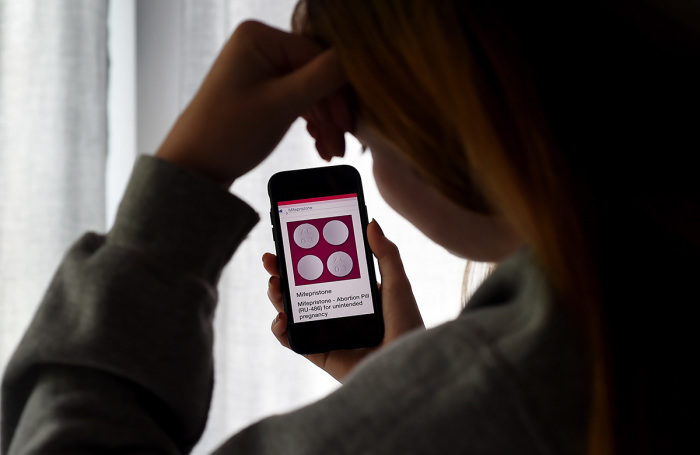Louisiana House passes bill to punish abusers for poisoning women with abortion drugs

The Louisiana House of Representatives passed a bill Tuesday that would change the drug classification of mifepristone and misoprostol and establish a punishment for anyone who tries to poison a woman with chemical abortion pills.
The law is named after the sister of the bill's sponsor, whose ex-husband almost killed her unborn child with abortion pills he obtained from Mexico.
SB 276 (The Catherine and Josephine Herring Act) was approved in the Louisiana House by a 64-29 bipartisan vote. If signed into law, the legislation would add mifepristone and misoprostol to Louisiana's controlled substance list, placing the two drugs used in the abortion pill regimen in the same category as opioids and other addictive substances.
The law includes penalties for possessing chemical abortion drugs without a prescription and could enable the state to track abortion drugs through a database.
However, the bill exempts abortion-minded pregnant women from prosecution. The bill is still awaiting approval in the state Senate and must be signed by Republican Louisiana Gov. Jeff Landry before it can take effect.
"Coerced criminal abortion by means of fraud is committed when a person knowingly and intentionally engages in the use or attempted use of an abortion-inducing drug on a pregnant woman, without her knowledge or consent, to cause an abortion," the bill states.
Coercing a woman into taking abortion-inducing drugs "substantially increases the pregnant woman's risk of death or serious bodily harm," the legislation adds.
Some studies have found that the complication rate for chemical abortions is four times as high as the rate for surgical abortions. According to the Food and Drug Administration, as of December 2022, there have been 32 reported deaths associated with mifepristone since the drug's approval in September 2000.
Pro-life advocacy groups and researchers contend that the deaths and injuries associated with chemical abortion drugs are often unaccounted for due to a lack of proper reporting of abortion complications.
Catherine Herring, the sister of the bill's sponsor, Sen. Thomas Pressly, said that her experience as a survivor of domestic violence made her grateful for Louisiana's willingness to protect women and children from those who intend to harm them with abortion drugs."
"There was no 'choice' involved when my husband slipped abortion drugs into my drinks seven times," Herring said in a statement. Herring's ex-husband, Mason Herring, received 180 days in a county jail for poisoning her.
Caitlin Connors, the southern regional director for the national pro-life grassroots activist organization Susan B. Anthony Pro-Life America, believes adding abortion drugs to the controlled substance list should be "uncontroversial" as it would still be available for medical purposes but make it more difficult for abusers to obtain.
"This move is necessary in a world where pro-abortion Democrats have enabled abusers to coerce and poison mothers with dangerous abortion drugs by removing in-person doctor visits and giving abortionists immunity through shield laws," Connors said. "Women deserve better."
In a press call organized by the Biden-Harris campaign, attorney Ellie Schilling claimed that the bill would make it more difficult for the drugs to be used for medical purposes and could lead to government monitoring of pregnant women who are prescribed those drugs.
"The State of Louisiana would effectively be creating a database of prescriptions for every woman who is prescribed mifepristone and misoprostol, regardless of the reason, truly monitoring women and their pregnancies," Schilling said, according to CBS News. "That should be unimaginable in America."
In a Thursday X post, the pro-life watchdog Center for Client Safety, formerly known as Reprotection, celebrated the bill passing in the Louisiana House. The pro-life organization investigates abortion facilities for potential violations of the law and then holds them accountable by reporting these violations to the proper enforcement agency.
"Louisiana House had passed the bill to add mifepristone and misoprostol to the DEA's list — this would be a huge win for the well-being of women, especially in light of mounting evidence suggesting the dangers associated with these drugs," CCS wrote.
According to the Society of Family Planning's latest #WeCount report released earlier this month, an average of 17,000 telehealth abortions occurred in the United States between October and December 2023. Nearly 8,000 women per month in states with bans or other abortion regulations obtained one from a telehealth provider in one of five states that had shield laws at the time.
In a Thursday statement, Chanel Prunier, vice president of political affairs for Students for Life Action, the sister organization of Students for Life of America, called chemical abortion drugs "a lethal but legal scourge in the abortion business." Prunier claimed the abortion industry has "always been about the money" and "not the mothers."
Samantha Kamman is a reporter for The Christian Post. She can be reached at: [email protected]. Follow her on Twitter: @Samantha_Kamman



























